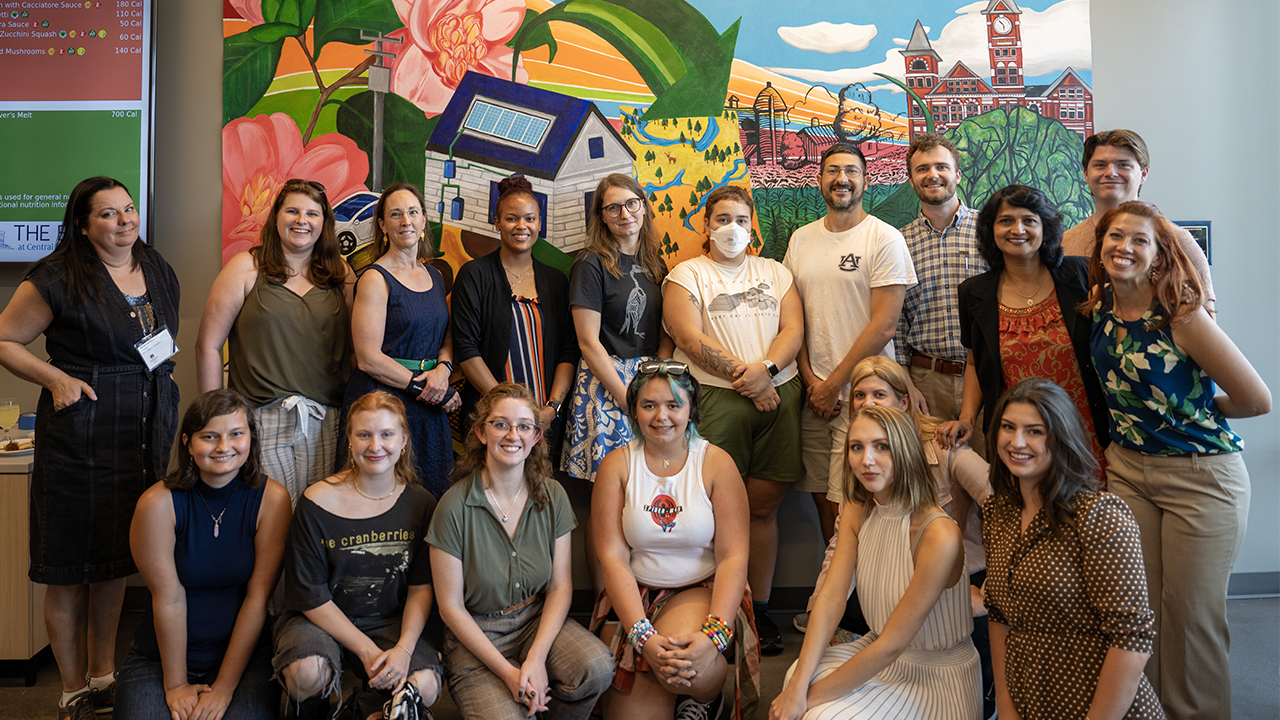content body

Auburn University’s AU SOLVES initiative has been awarded the Competitive Outreach Scholarship grant (COSG) from the university’s internal outreach funds further advancing efforts to connect graduate education with industry and real-world problem-solving. The funding, provided through Auburn’s Outreach Office of faculty Engagement, was available exclusively to faculty for projects that enhance outreach and engagement opportunities.
The grant will support AU SOLVES in institutionalizing key aspects of the soon-to-conclude National Science Foundation (NSF) National Research Traineeship (NRT) Climate Resilience program at Auburn. The NRT, a $3 million initiative launched in 2019, was the first of its kind in Alabama and aimed to provide graduate students with interdisciplinary training, career development and research opportunities beyond traditional academic settings.
The geosciences faculty members leading AU SOLVES, emphasized that one of the most impactful components of the NRT program was its focus on professional development and career readiness. This was achieved through direct engagement with industry, federal and community stakeholders, alumni panels and interdisciplinary collaboration.
“Through NRT, we introduced career development initiatives where students interacted with stakeholders and alumni who had transitioned into industry roles,” Chandana Mitra said. “These panels helped current students understand what to do — and what not to do — when planning their careers.”
As part of this effort, the NRT team connected with Megan Bryant from Auburn’s College of Sciences and Mathematics’ (COSAM) Career Services and civil engineering career development staff. This collaboration ultimately led to a partnership with Engineering Consulting Services (ECS), a firm that specializes in geotechnical and environmental consulting. The partnership highlighted a gap in industry awareness of geosciences and earth system sciences, demonstrating the need for stronger integration between academic training and industry needs.
“The engineering professionals we engaged with were environmentally aware but weren’t fully familiar with the broader capabilities of geosciences,” Mitra said. “We wanted to bridge that gap by showing how geospatial analysis, environmental impact assessments and problem-solving methodologies in geosciences can contribute to real-world challenges like site selection for factories and infrastructure development.”
The AU SOLVES program aims to institutionalize these successful elements from the NRT program. The initiative focuses on fostering co-production of knowledge, integrating science communication and ensuring that graduate students are equipped with the skills needed to thrive in a variety of career paths.
“Six years seems like a long time, but in terms of trying to innovate graduate education, it’s really not,” Karen McNeal said. “Our goal has been to take the successful elements of the NRT and create a sustainable model that will continue to benefit students and community partners alike.”
The impact of the program is already being recognized on a broader scale. A research paper detailing the effectiveness of these initiatives from a graduate trainee’s perspective was recently accepted for publication in "PLOS ONE," a respected peer-reviewed journal. The paper highlights how Auburn NRT’s emphasis on co-production of research and science communication has influenced students’ career trajectories.
With the support of this new grant, AU SOLVES is set to expand the NRT program’s outreach, further strengthening connections between Auburn, its graduate students and community partners. By building upon the foundation laid by the NRT program, AU SOLVES will continue to equip students with the skills and experiences needed to excel in careers both within and beyond academia.
To learn more, watch the NRT Mural video here.




